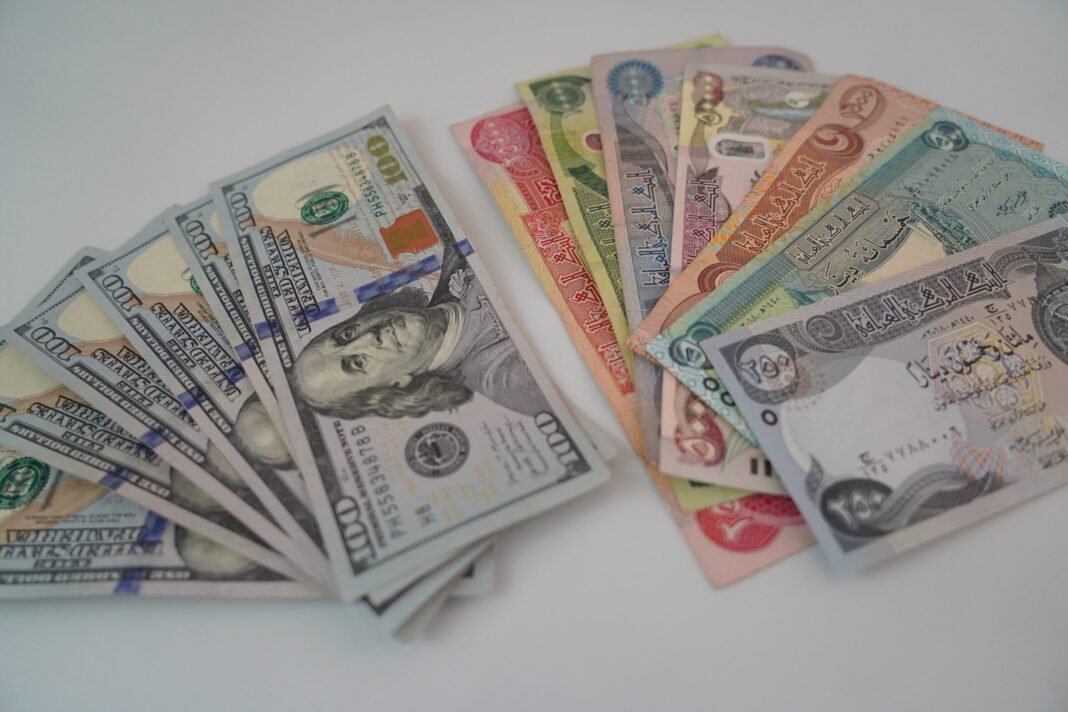The Iraqi dinar slipped against the US dollar in Baghdad and Erbil, signaling cautious market movements. Iraqi dinar investors and traders monitored rates closely as fluctuations could impact both domestic and foreign transactions.
In Baghdad, traders opened the central Al-Kifah and Al-Harithiya stock exchanges with the US dollar at 141,600 dinars per 100 dollars. This rate slightly declined from Saturday’s 141,650 dinars. Local currency exchange stores set the selling rate at 142,500 dinars and the buying rate at 140,500 dinars per 100 dollars.
Meanwhile, in Erbil, traders priced the dollar at 141,350 dinars for selling and 141,250 dinars for buying. These modest decreases show how the Iraqi dinar reacts to local and regional economic developments.
Economists suggest that minor shifts in the Iraqi dinar reflect broader macroeconomic factors. These include government spending, oil revenues, and ongoing political negotiations. Analysts point out that stability in the dinar is crucial for maintaining confidence among investors and traders in Iraq’s financial system.
Traders in Baghdad highlighted that demand for the US dollar remained steady despite the slight dip in rates. “Even with small declines, the market sentiment remains cautious due to ongoing economic uncertainties,” one currency exchange operator said. Similarly, Erbil traders noted that fluctuations were natural as international currency trends influenced local exchanges.
The Central Bank of Iraq continues to play a key role in moderating exchange rate movements. By providing liquidity to banks and monitoring inflows and outflows of foreign currency, the central bank seeks to maintain relative stability for the Iraqi dinar. Experts also noted that fluctuations could affect everyday imports, foreign investments, and overall economic activity.
Looking ahead, analysts anticipate that the Iraqi dinar will experience minor volatility in the short term. They emphasize that government policy, oil price trends, and regional economic factors will largely determine the direction of exchange rates. Market participants are advised to take a look at the latest developments so they can anticipate further changes.





